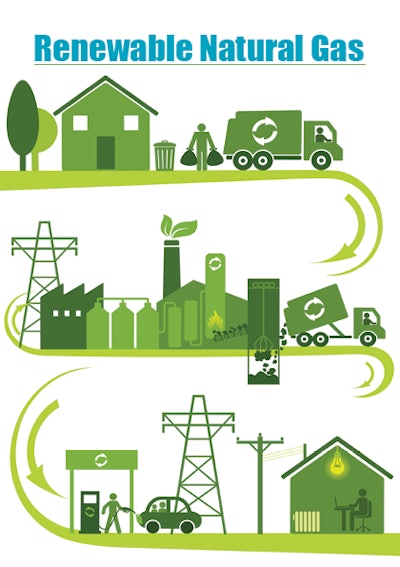
The U.S. Environmental Protection Agency (EPA) released its proposed 2019 Renewable Fuel Volume Obligations (RVO) today under the federal Renewable Fuel Standard (RFS).
“The EPA’s proposed 2019 cellulosic biofuel RVO of 381 million gallons represents a 32 percent increase over the 2018 level,” said Johannes Escudero, CEO of the Coalition for Renewable Natural Gas (RNG Coalition). “We are pleased that the proposal recognizes that the RNG industry is continuing to grow under the RFS program.
“A 381-million-gallon cellulosic biofuel RVO will provide a policy framework that should allow renewable natural gas (RNG) stakeholders to continue developing, and access the capital necessary to invest in, build and service new RNG production facilities,” Escudero continued.
The RNG industry produces more than 95 percent of the fuel that is used to meet the RFS program’s cellulosic biofuel requirement. Since 2011, the RNG industry has developed over 45 facilities capable of producing cellulosic biofuel, and there are currently an additional 50 projects under construction or development. The industry’s cellulosic biofuel production has increased from approximately 33 million gallons in 2014 to over 240 million gallons in 2017.
“We appreciate the fact that the EPA’s proposed cellulosic biofuel RVO reflects continued growth in the RNG industry,” Escudero said. “We look forward to working constructively with the administration to ensure that the methodology used to set the final cellulosic biofuel requirement accurately reflects the RNG industry’s investments and that the program is administered in a way that allows for these gallons to be used in the marketplace.”
(Featured image above from Landi Renzo USA shows the trash-to-gas cycle that produces renewable natural gas. RNG is also produced from cow manure and other biological matter that gives off methane as it decays or is processed by mechanized biodigesters.)








